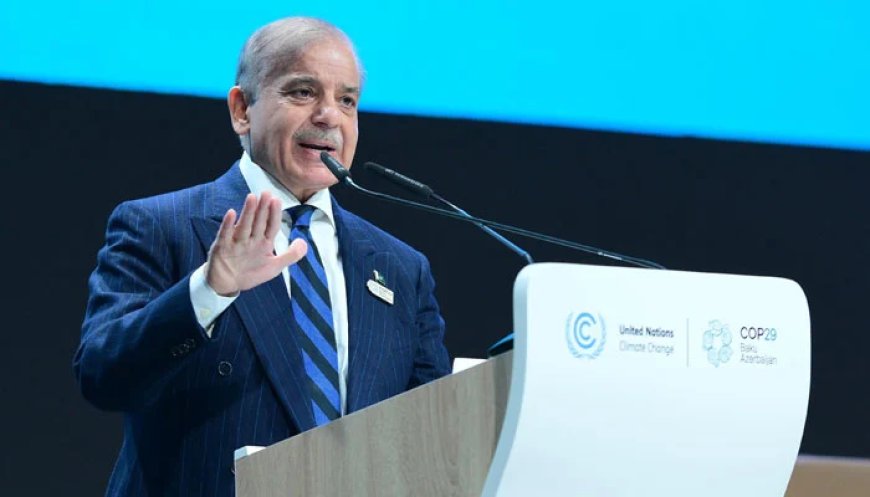'No real resilience sans climate justice', PM tells COP29 Climate Action Summit

1. "Pakistan needs international support to deliver climate ambitions," says Premier Shehbaz, calling for grants, not loans
Prime Minister Shehbaz Sharif emphasized that true resilience against climate change is impossible without climate justice, calling for increased climate funding for developing nations. Speaking at the COP29 Climate Action Summit in Baku, Azerbaijan, he argued that countries with minimal emissions should not bear the brunt of climate impacts caused by larger polluters without financial resources to build resilience. “Without climate justice, there can be no real resilience,” he stated.
The summit, gathering nearly 200 nations, aims to secure substantial financing for global climate initiatives, helping countries transition to clean energy and adapt to a warming climate. Leaders are pushing for a deal to channel up to trillions of dollars into climate projects worldwide.
Expressing concern, PM Shehbaz recalled Pakistan’s devastating experience with extreme climate events in 2022, highlighting Pakistan's commitment to climate solutions. He also noted his government’s actions to increase renewable energy to 60% and transition 30% of vehicles to electric by 2030, signaling an upcoming “renewable energy revolution” in Pakistan.
He outlined Pakistan’s progress, including its national adaptation plan and carbon market framework, yet stressed the need for international support to meet its climate goals. He pointed out that developing countries will require an estimated $6.8 trillion by 2030 to implement less than half of their current climate targets, adding that climate finance must be grant-based to avoid further debt burdens on these nations.
Referencing the unmet $100 billion annual funding pledge made in 2009, PM Shehbaz called on wealthy nations to fulfill their financial commitments, urging COP29 to ensure clearer funding goals. Wealthier nations have proposed a multi-tiered financing model with contributions from governments, multilateral lenders, and private investors, as previous targets have been inadequately met.
Global climate funding remains unbalanced, heavily favoring larger economies while Africa, for example, has received only 2% of renewable energy investment over the past two decades. As nations prepare to update their climate targets next year, scientists warn that failing to secure adequate funding at COP29 could weaken future commitments, hindering the world’s ability to address the climate crisis in time.


















































